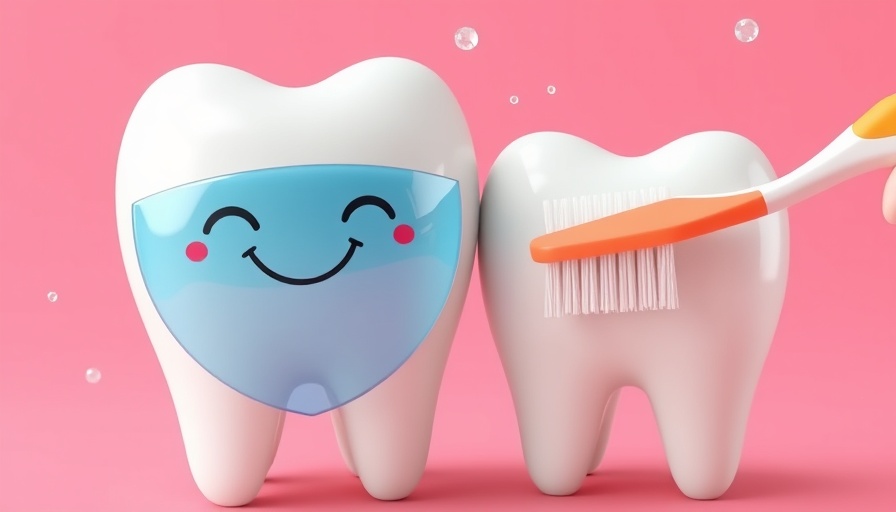
Understanding Tooth Decay: A Common Concern
Tooth decay is a prevalent issue faced by many individuals, often leading to cavities and other dental problems. The process starts when bad bacteria in the mouth consume sugary foods, producing acids that attack the tooth enamel. According to John Featherstone, a renowned professor emeritus of preventive and restorative dental sciences, this attack weakens the enamel through a process called demineralization, where essential minerals like calcium are leached from the teeth. Over time, if this process continues unchecked, it can culminate in a cavity that necessitates professional treatment.
Can You Really Reverse Tooth Decay?
There's a growing trend in the market where products claim to reverse tooth decay. Specialty toothpastes, powders, and even chewing gums are advertised as solutions to restore enamel and remineralize teeth. However, the reality is more complex than marketing claims would suggest. Experts in the field stress that once a cavity has formed, it cannot be reversed. However, early demineralization, before a cavity forms, can potentially be addressed through certain oral hygiene practices.
The Role of Remineralization
The idea of remineralization revolves around reinforcing the enamel by providing necessary minerals back to the teeth. This can be achieved through diet and certain dental products. For instance, fluoride — a common ingredient in many toothpaste brands — aids in the remineralization process and has proven effective in preventing further decay. It seems that while you can't completely reverse damage that has been done, you can take steps to halt the progression of decay at its earlier stages.
Influence of Diet on Oral Health
A significant factor influencing tooth decay is diet. Regular consumption of sugar and acidic foods leads to an increase in the production of harmful acids by bacteria. It’s advisable to limit sugary snacks and beverages, opting for foods rich in calcium and phosphate, like dairy products, nuts, and leafy greens. These foods not only promote overall health but also support the dental structure when consumed as part of a balanced diet.
Understanding Current Innovations in Dental Health
Some new innovations in dental care are attempting to address issues surrounding decay. Products infused with hydroxyapatite — a natural mineral that makes up tooth enamel — are gaining traction. These products claim to help restore the enamel surface and prevent further decay. While research is ongoing, initial studies show promising results, indicating a new approach to tackling tooth decay at its roots.
Stopping Tooth Decay Before It Starts
Preventive care is essential in maintaining oral health. Regular dental check-ups are critical, as they can identify early signs of decay that may not be apparent at home. Furthermore, maintaining good oral hygiene practices—brushing twice a day, flossing regularly, and using mouthwash—can significantly reduce the ability of bad bacteria to thrive.
Real-Life Testimonials from Dental Experts
Dr. Emily Carter, a dentist with over a decade of experience, highlights the importance of patient education in preventing decay. She notes, “Many patients believe that once they develop a cavity, their teeth require immediate fillings. However, educating them about preventive strategies can effectively halt the development at earlier stages.” Her beliefs mirror the broader trend of increasing awareness among patients about their role in maintaining dental health.
The Future of Dental Health Innovations
As we look ahead, there’s no doubt that technological advancements will continue to transform dental care. Researchers are exploring the potential of artificial intelligence in predictive analytics to forecast tooth decay risk, giving patients a proactive way to address their oral health. Such innovations may soon provide practical tools to not only manage but also predict tooth decay development, redefining how we think about preventive dental care.
In summary, while the myth that tooth decay can be completely reversed is largely unfounded, understanding the nuances of dental health can empower individuals to take meaningful steps in safeguarding their teeth. By prioritizing oral hygiene, making informed dietary choices, and keeping abreast of innovations in dental care, we can protect ourselves against the inevitable progression of tooth decay.
 Add Row
Add Row  Add
Add 




 Add Row
Add Row  Add
Add 

Write A Comment